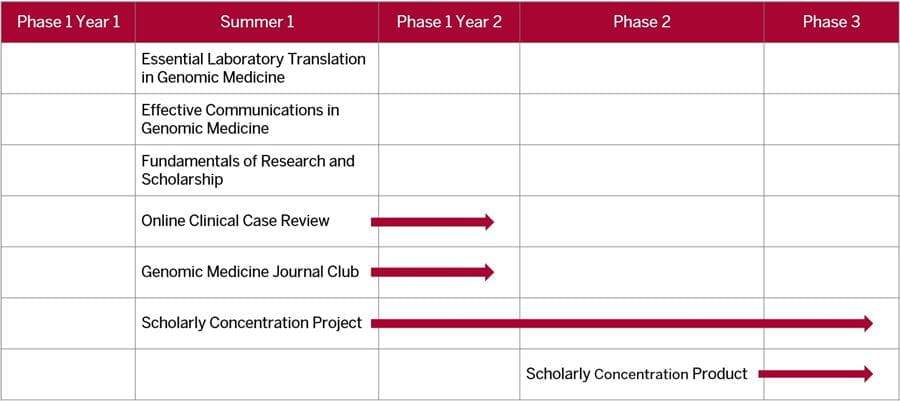Medical genetics is rapidly changing and shaping patient care. Therefore, it is imperative that clinicians understand cutting-edge diagnostic and treatment approaches. This concentration provides a deep dive into the latest genetic developments and concepts that are transforming the practice of medicine. Students may explore clinical research (including lab diagnostics and gene therapy), clinical case reports with literature reviews, or new areas of interest. Students will have the opportunity to interact with clinical geneticists, laboratory geneticists, and genetic counselors to have a better understanding of the intersection of these roles with other medical specialties.
Location
All coursework (except the online Fundamentals of Research and Scholarship, Online Clinical Case, and Genomic Medicine Journal Club courses) takes place in Indianapolis. The scholarly project typically occurs in Indianapolis.
Curriculum and Timeline
Students completing the Medical Genetics concentration fulfill the same core curriculum as students in other concentrations. The didactic components provide a strong academic and experiential foundation in medical genetics that is vital for completion of the core curriculum project and product.



